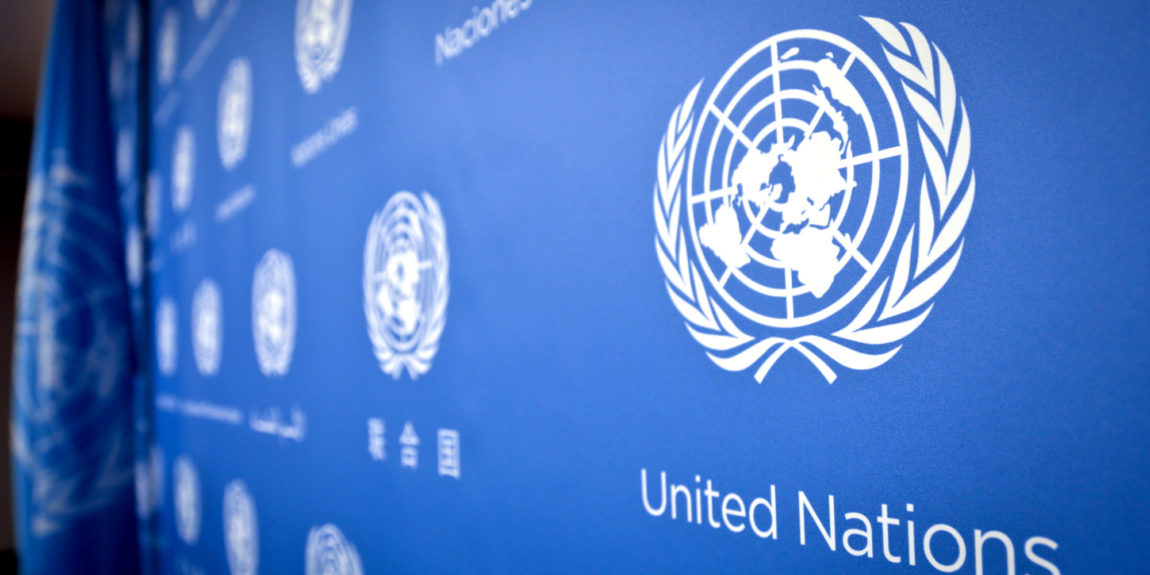
Human Rights and Islam: We Must Work More …
What are human rights? Which are human rights? And why are these rights essential for each person to feel free?
It was 1948 when the United Nations decided to put on paper a statement, an ethical code, which had a legal value recognized indirectly.
After the dramatic events of World War II, the International community gathered and wrote those inviolable rights that should be the basis of every civil society. The so-called “Universal Declaration of Human Rights” was born, in which all the fundamental principles are summarized in 30 articles.
These include: the principle of equality and freedom (Art. 1), the principle of non-discrimination (Art.2), the economic and social individual rights, the prohibition of torture or subjection to cruel punishments (Art.5), equal treatment before the law (Art.7), the principles of free conscience, thought, faith (Art.18), the right to marriage without any limitation of race, nationality or religion (Art. 16), the right to education (Article 26), etc.
This declaration has been the pillar of the next Charter of Fundamental Rights of the European Union, which officially entered into force with the Treaty of Lisbon of 2009, with full binding force for all European countries.
This Charter reaffirms the already stated rights of the Universal Declaration in a strengthened way, as: the right to human dignity, the right to life, the prohibition of torture and inhuman or degrading treatment or punishment, the prohibition of slavery, freedom of thought, conscience and religion, as well as the right to education, equality before the law, equality between men and women, the principle of legality and the proportionality of crimes and punishments. The commitment of each country is strictly important to adopt these principles.
Despite the efforts of some countries, aimed to the concrete and substantive application of these principles, something went wrong in other parts of the world (Arabia, Pakistan, Sudan, Iran etc.). The “Universal Declaration of Human Rights ” was not enforceable in some Islamic-majority countries, since in contrast to the values of Islamic religion, and in 1990 the so-called “Cairo Declaration of Human Rights of Islam” was signed.
If we think from a legal point of view, it is not quite clear how some States may dissociate themselves from holding certain rights and retain them not applicable to their culture. Furthermore is even complicated to understand how to mix the secularity of norms, that govern the life of the individuals, with their religious beliefs; this would already be in contravention of Articles 2, 6, 7, 11 of the Declaration stated in 1948 but remains a purely Western view of the law, which cannot be found in cultures that are mainly Islamic and make sure that this can also affect the legislative power. Indeed, in the “Cairo Declaration”, the whole list of human rights is subject to the respect and predominance of sharia, the so-called “Islamic law”. This choice has made increasingly complex, hard and tortuous, the path to the effective implementation of common fundamental rights for all mankind.
To understand what are the controversial points of Islamic law with regard to human rights in the United Nations, we need to clarify some of the norms that “sharia” imposes, replacing them with the law of individuals. I will focus on some fundamental themes, but we must not forget that the divergences and the points of confrontation also cover other issues.
Women conditions
Because of cultural and religious factors, the concept of equal opportunities fails to take off. It is well known that women’s position in social life cannot be compared to the men’s status in Islamic-majority countries, just think of the driving ban or the banning vote still used in some countries few years ago.
Returning to the rules contained in “sharia”, the true Islamic law, we can immediately experience a strong element of legal inequality related to the criminal trial, the woman in fact has a reduced testimony ability.
Her testimony is worth half. The coherence of the statements made by two male witnesses is enough to constitute a valid trial, instead of four, if there are only female witnesses. The women’s jurisdictional power is limited regarding the possibility of being a “Qadi” (a kind of Judge).
The “shaira” does not totally exclude this possibility, but this chance has found strong resistance in practice.
Minors conditions
According to Islamic law, one of the fundamental rights of minors is to have a father, this is the base of all rights related to the child, such as the right to be fed, educated and protected.
The granting of paternity automatically arises from the existence of a valid marriage; the father is so responsible directly for the born child.
The pregnancy period is considered from six months to two years, which means that a husband can recognize his own baby born within two years by the end of the marriage; his rejection could give rise to an accusation of adultery.
This principle implies that if a woman commits adultery and get pregnant, the attribution of the child’s paternity can be given only to the legitimate husband. Although the recognition of the paternity of a person of unknown origin is in fact an adoption, the institute of adoption does not exist, because it is denied by the Koran
Marriage
Family law is the branch of the Muslim law most anchored to the divine law. However, these norms also have significant limits, which have allowed the interpreters work of accommodation and adaptation. All schools of interpretation consider marriage as a contract sanctioned by divine law, and not a religious sacrament (as for the Christian religion).
In order to describe a marriage, the different stages of the institution’s establishment can be highlighted.
Marriage is preceded by engagement, in which both sides express the will to enter into a union. At any stage of the engagement, each contractor may escape the promise made, except for the right of the other party to claim compensation for any damage suffered by the commitment failure.
There are further basic requirements for a marriage to be valid between the parties.
A divorced woman cannot marry again if she has had a triple repudiation in the previous marriage; a man cannot marry a woman who professes a pagan religion, other than Muslim, Jewish or Christian religion; the woman, on the other hand, can only marry a Muslim man.
The main economic obligation imposed on the husband by the law is the maintenance of the wife (food, clothes, housing), the husband is not obliged to secure his wife until the marriage has been consumed. The right to maintenance is suspended if the wife is underage or disobedient (if she leaves the house without permission or refuses the marriage relationship).
In marital relationships between spouses, women can freely administer their property, except for acts of selling, which require the consent of her husband. Her husband’s power is rather broad and includes “the right of correction”: a woman can be forbidden to go out and cannot host people at home freely. The wife, in general, is obliged to obey his husband and to put herself at his disposal.
Criminal Law
As far as the sources of criminal law are concerned, Islamic law is usually based on two types of sources: one derived from personal revenge, the other one relating to punishment for crimes committed against the religion. However, the distinction of offenses is based on sanctions and not according to the conduct being implemented, as in Western countries.
The penalties are divided in:
Sanctions Hudud, provided directly by the Koran (against Art. 5 of UDHR)
Sanctions Qisas, punished according to the principle of Talion (against Art. 5 of UDHR)
Sanctions Ta’zir, remitted to the discretion of the judge
Regarding the punishments described should be pointed out that, to date, they are fully utilized only in Saudi Arabia; in all the other countries where the law of sharia operates, there is a coexistence between Islamic law and Western criminal law.
Hudud’s sanctions punish the crimes of: adultery, false accusation of having committed adultery, drinking wine, theft, robbery, apostasy, rebellion. The foreseen punishments are: death penalty by means of stoning or decapitation, the cut of hands or other parts of the body and the frustrations. Particularly with regard to the offense of sexual violence in Pakistan, the man committing the offense is punished with stoning, but only if he has confessed or if four witnesses are present; if that does not happen, the woman who has denounced the violence risks the punishment. In addition, homosexuality cases are punished with the same sanction.
The offense of defamation and the use of alcoholic substances are punished with eighty bumps.
The theft involves the amputation of the hand, usually the right one, in case of a subsequent episode there is the amputation of the other hand, if the offense is committed for the third time there is amputation of the foot and so on.
The apostasy is punished by decapitation if committed by a man, by imprisonment if committed by a woman.
Qisas’s sanctions, these penalties concern mainly blood crimes, offenses against the person, such as murder and any physical violence or injury.
Punishment consists in the “Talion law”, which recognizes the possibility for a person, who has received an offense, to inflict an offense equal to the offense received.
Ta’zir’s sanctions, they concern offenses against religion, personal security and property. Even though these rights are protected by “hudud” or “qisas” penalties, if the offense is not serious enough it can be punished with a “ta’zir” sanction. The injured person will have to go to the Qadi (Judge) denouncing the crime, the Qadi will evaluate the severity and will verify the truth.
The expected punishments are fines, imprisonment, bribes and capital punishment (sodomy cases). Ta’zir punishments can be avoided by the sincere repentance of the culprit and the will to fully conform to the right principles of Islam.
It is clear the discretion between the principles adopted in the ‘48 and a statement that bases its interpretation on “sharia”, which is clearly in contradiction with the fundamental human rights. It makes us understand how complex it is, both from a legal and a substantive point of view, to make sure that all humanity is gathered together achieving a common purpose.
The countries that adopted the “Cairo Declaration” are at the last places in the rankings that monitor the level of humanization of the world; these countries are about 57, and have negatively contributed to the development of a common project.
In 1990 (Cairo Declaration) a violent separation action was made, which made the development of fundamental rights very complex and placed under the spotlight those places where there is still much to be done.
The recent election of Saudi Arabia within the Committee on the Status of Women (United Nations) does nothing but worsen the situation, as it shows the willingness to blindfold the eyes of the organizations that should have opened it. That is why the work of all Non – governmental organizations is of paramount importance in order to shed light on places where others want shadow.
Salvis Juribus – Rivista di informazione giuridica
Direttore responsabile Avv. Giacomo Romano
Listed in ROAD, con patrocinio UNESCO
Copyrights © 2015 - ISSN 2464-9775
Ufficio Redazione: redazione@salvisjuribus.it
Ufficio Risorse Umane: recruitment@salvisjuribus.it
Ufficio Commerciale: info@salvisjuribus.it
***
Metti una stella e seguici anche su Google News
The following two tabs change content below.
Angelo Ferro
Laureato in Giurisprudenza presso l'Università degli Studi di Napoli Federico II, laurea magistrale (LMG/01), periodo di studi all’estero presso l’University of World and National Economy (Sofia) e ricerca tesi nell’ ambito del Diritto Finanziario Internazionale presso la Kadir Has University di Istanbul. Giornalista pubblicista, consulente legale nell’ambito delle politiche europee, consegue l’International Master in European Studies presso l’Universitè Catholique de Louvain (Bruxelles) , è attualmente il rappresentate dell’International Youth Federation per l’Italia.







